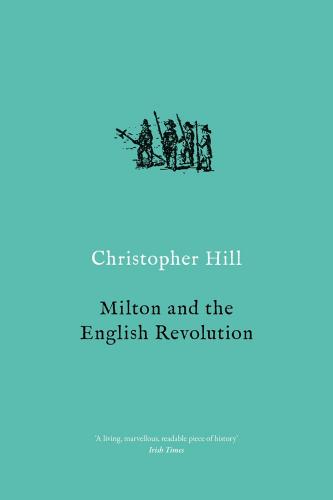I—VERSE
On the Morning of Christ’s Nativity (1629)
L’Allegro and Il Penseroso (c. 1631 ?)
Comus, A Masque (1634, published 1637)
Ad Patrem (1630s)
Lycidas (1638)
Epitaphium Damonis (1640)
Poems (1645)
Paradise Lost (1667)
Paradise Regained (1671)
Samson Agonistes (1671)
Poems (second edn., 1673)
II—ENGLISH PROSE
Commonplace Book (1630s onwards). C.P.W., I, pp. 362–508
Of Reformation (May 1641). C.P.W., I, pp. 519–617
Of Prelatical Episcopacy (June or July 1641). C.P.W., I, pp. 624–52
Animadversions upon The Remonstrants Defence against Smectymnuus (July 1641). C.P.W., I, pp. 662–735
The Reason of Church Government (January or February 1642). C.P.W., I, pp. 746–861
An Apology against a Pamphlet (April 1642). C.P.W., I, pp. 868–953
The Doctrine and Discipline of Divorce (August 1643). C.P.W., II, pp. 222–356
Of Education (June 1644). C.P.W., II, pp. 362–415
The Judgment of Martin Bucer (July 1644). C.P.W., II, pp. 422–79
Areopagitica (November 1644). C.P.W., II, pp. 486–570
Tetrachordon (March 1645). C.P.W., II, pp. 578–718
Colasterion (March 1645). C.P.W., II, pp. 722–58
The Tenure of Kings and Magistrates (February 1649). C.P.W., III, pp. 190–258
Observations upon the Articles of Peace (May 1649). C.P.W., III, pp. 260–334
Eikonoklastes (October 1649). C.P.W., III, pp. 337–601
A Treatise of Civil Power (February 1659). C.M., VI, pp. 1–41
Considerations touching the Likeliest Means to Remove Hirelings out of the Church (May 1659). C.M., VI, pp. 43–100
A Letter to a Friend (October 1659). C.M., VI, pp. 101–6
Proposalls of Certaine Expedients (November 1659: published 1938). C.M., XVIII, pp. 3–7
The Ready and Easy Way to establish a Free Commonwealth (March 1660). C.M., VI, pp. 111–44
A Letter to Monck (March 1660). C.M., VI, pp. 107–9
Brief Notes upon a Late Sermon (April 1660). C.M., VI, pp. 151–63
Accidence Commenced Grammar (1669). C.M., VI, pp. 285–353
The History of Britain (1647 onwards: published 1671). C.P.W., V, pp. 1–403
Character of the Long Parliament (1647 onwards: published 1681). C.P.W., V, pp. 440–51
Of True Religion, Heresy, Schism, Toleration (1673). C.M., VI, pp. 165–80
A Declaration or Letters-Patents (1674). C.M., VI, pp. 273–84
A Brief History of Moscovia (published 1682). C.M., X, pp. 327–72
Letters of State (published 1694)
III—LATIN PROSE
Prolusions (1628–32: published 1674). C.P.W., I, pp. 216–306
Pro Populo Anglicano Defensio (February 1651). C.P.W., IV, pp. 301–537
Defensio Secunda (May 1654). C.P.W., IV, pp. 548–686
Pro Se Defensio (August 1655). C.P.W., IV, pp. 698–825
Artis Logicae Plenior Institutio (1672). C.M., XI, pp. 3–515
Epistolarum Familiarum Liber Unus (1674)
De Doctrina Christiana (?1655–74: published 1825). C.P.W., VI, pp. 117–807
The civil war of the seventeenth century, in which Milton is a symbolic figure, has never been concluded. … Of no other poet is it so difficult to consider the poetry simply as poetry, without our theological and political dispositions, conscious and unconscious, inherited or acquired, making an unlawful entry.
T. S. Eliot, Milton (1947), p. 3
Milton is a more controversial figure than any other English poet. Many of the controversies relate to Milton’s participation in the seventeenth-century English Revolution, yet Milton is more controversial even than that Revolution itself. Those who dislike Milton dislike him very much indeed, on personal as well as political grounds. How could the American who proclaimed himself Royalist, Anglo-Catholic and classicist have any use for England’s greatest republican anti-Catholic? Blake, Shelley and Herzen were more attuned to Milton: so were Jefferson, Mirabeau and the Chartists.
Yet the controversies around Milton are not simple. He was, for instance, a propagandist of revolution, a defender of regicide and of the English republic. Dr. Johnson and many since have found it hard to forgive him for this, or to be fair to him. Yet Milton frequently expressed great contempt for the common people, and so cannot be whole-heartedly admired by modern democrats. He was a passionate anti-clerical, and in theology a very radical heretic. Since he was also a great Christian poet, ‘orthodox’ critics have frequently tried to explain away, or to deny, his heresies. We may feel that these attempts tell us more about the commentators than about Milton, but they have not been uninfluential. On the other hand, Milton’s radical theology is far from conforming to the sensibility of twentieth-century liberal Christians.
The popular image of Milton is of a sour Puritan, an arrogant and hypocritical male chauvinist who ill-treated his own wife and daughters. But his contemporaries denounced him as a libertine who encouraged the insubordination of women, as an advocate of ‘divorce at pleasure’ and polygamy. Milton has been criticized for approaching serious political and social problems from a totally personal angle – for writing about divorce only after his own marriage had broken down, about liberty of printing only after he had himself run into trouble with would-be censors; for attacking in an unbalanced way the leaders of the Long Parliament (in the ‘digression’ to his History of Britain) because he himself had had difficulties with some of that Parliament’s committees. A similar accusation of making political issues out of personal problems was made against the Leveller leader John Lilburne. Even if the charge is true, the ideas still remain to be judged on their merits.
Although Milton was a considerable scholar, and classicist enough to satisfy T. S. Eliot, he offends many readers by his apparent rejection of all human learning in Paradise Regained and the De Doctrina Christiana. Stylistically, he is accused of writing an old-fashioned prose, lacking in simplicity and directness; and verse in a style which (because
